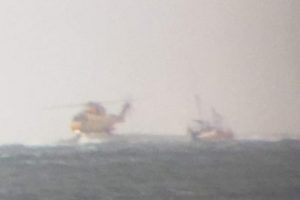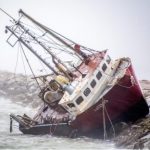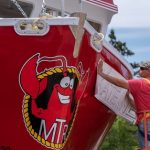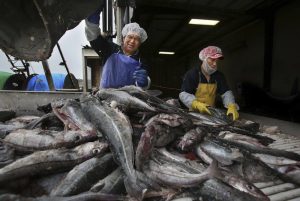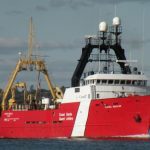Monthly Archives: May 2016
Fisheries Minister Hunter Tootoo, citing “addiction issues,” has resigned
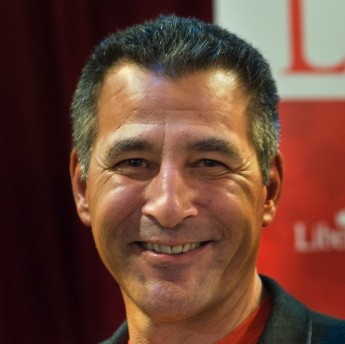 Fisheries Minister Hunter Tootoo, citing “addiction issues,” has resigned from the federal cabinet and is leaving the Liberal caucus.Dominic LeBlanc, the government’s House leader, will assume Tootoo’s cabinet responsibilities.A statement from Prime Minister Justin Trudeau’s office says Tootoo is “taking time to seek treatment for addiction issues.”Tootoo, the first northerner to take on the role of fisheries minister, issued a brief statement saying he was stepping down in order not to distract from the important work of his colleagues.Tootoo said he has “decided to seek treatment for addiction issues” and asked for “privacy at this time.” Read the rest here 20:38
Fisheries Minister Hunter Tootoo, citing “addiction issues,” has resigned from the federal cabinet and is leaving the Liberal caucus.Dominic LeBlanc, the government’s House leader, will assume Tootoo’s cabinet responsibilities.A statement from Prime Minister Justin Trudeau’s office says Tootoo is “taking time to seek treatment for addiction issues.”Tootoo, the first northerner to take on the role of fisheries minister, issued a brief statement saying he was stepping down in order not to distract from the important work of his colleagues.Tootoo said he has “decided to seek treatment for addiction issues” and asked for “privacy at this time.” Read the rest here 20:38
“It’s been a long time coming.” Lobster season in southwestern Nova Scotia may be best in decade
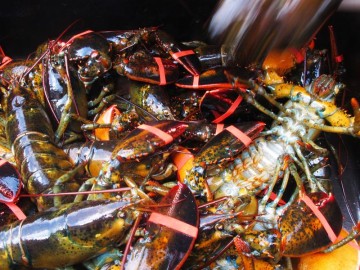 A lobster fisherman in southwest Nova Scotia says this season, which ends at midnight tonight, may have been the best in a decade. Bernie Berry, captain of the lobster boat Ready To Go and president of the Coldwater Lobster Association, said it’s too soon to calculate official landing numbers. But he estimates fishermen in the two lobster fishing areas that make up southwest Nova Scotia — from Halifax all the way down the South Shore to just south of Digby Neck — likely landed almost 75 million pounds of lobster this season. The 2015-2016 season is “one of the best, if not the best” in the past 10 years, Berry said. “It’s been a long time coming.” Read the story here 15:34
A lobster fisherman in southwest Nova Scotia says this season, which ends at midnight tonight, may have been the best in a decade. Bernie Berry, captain of the lobster boat Ready To Go and president of the Coldwater Lobster Association, said it’s too soon to calculate official landing numbers. But he estimates fishermen in the two lobster fishing areas that make up southwest Nova Scotia — from Halifax all the way down the South Shore to just south of Digby Neck — likely landed almost 75 million pounds of lobster this season. The 2015-2016 season is “one of the best, if not the best” in the past 10 years, Berry said. “It’s been a long time coming.” Read the story here 15:34
A dwindling North Fork fishing community urge emergency measures to keep black sea bass season open
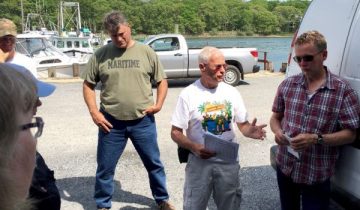 About a dozen of them met at a Mattituck marina Thursday to vent their frustration at the measure, which one fisherman said would reduce his income by 80 percent. Meanwhile, the state’s top fishing regulator wrote a letter to federal fisheries managers urging them to expedite an assessment to improve the data upon which local quotas are based. State regulators are pushing federal regulators to fix the problem. In a May 17 letter to top federal fishing regulators, Basil Seggos, acting DEC commissioner, noted the fishery has been rebuilt since 2009, yet fishermen “continue to struggle under low catch limits and restrictive measures while black sea bass appear to be more abundant than in any time in recent history.” Read the story here 14:41
About a dozen of them met at a Mattituck marina Thursday to vent their frustration at the measure, which one fisherman said would reduce his income by 80 percent. Meanwhile, the state’s top fishing regulator wrote a letter to federal fisheries managers urging them to expedite an assessment to improve the data upon which local quotas are based. State regulators are pushing federal regulators to fix the problem. In a May 17 letter to top federal fishing regulators, Basil Seggos, acting DEC commissioner, noted the fishery has been rebuilt since 2009, yet fishermen “continue to struggle under low catch limits and restrictive measures while black sea bass appear to be more abundant than in any time in recent history.” Read the story here 14:41
Sector Groups turning to technology to meet monitoring mandate
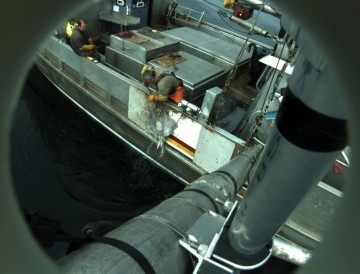 New England fishermen are starting to use digital cameras to document groundfish discards and prove they are fishing within established quotas, turning to technology for a method that may prove more cost effective than hiring human monitors. With support from the Gulf of Maine Research Institute, The Nature Conservancy is overseeing a new project, which launches on Wednesday, June 1 and is being hailed as a “new era in fisheries monitoring.” Up to 20 groundfishermen from the Maine Coast Community Sector and Cape Cod’s Fixed Gear Sector will use three to four cameras to capture fish handling activity on the decks of their vessels. After completing their trips, crews will send hard drives to third party reviewers who watch the footage and quantify the amount of discarded fish. Read the rest here 13:17
New England fishermen are starting to use digital cameras to document groundfish discards and prove they are fishing within established quotas, turning to technology for a method that may prove more cost effective than hiring human monitors. With support from the Gulf of Maine Research Institute, The Nature Conservancy is overseeing a new project, which launches on Wednesday, June 1 and is being hailed as a “new era in fisheries monitoring.” Up to 20 groundfishermen from the Maine Coast Community Sector and Cape Cod’s Fixed Gear Sector will use three to four cameras to capture fish handling activity on the decks of their vessels. After completing their trips, crews will send hard drives to third party reviewers who watch the footage and quantify the amount of discarded fish. Read the rest here 13:17
Damon Stuebner: USCGC Storis documentary was an 8-year ‘labor of love’
 A Juneau man has made a film about the Storis, a dainty icebreaker by polar standards, that rescued mariners and enforced the law along Alaska’s coast for almost 60 years. It took Damon Stuebner eight years to make this documentary. “It was a labor of love,” Stuebner said. It traces Storis’ journey, from its work in World War II, to its long history in Alaska dating to 1948 when it came to Juneau. Stuebner said the story of the ship tells Alaska’s story. “Storis was there for the Exxon Valdez oil spill. It was there for the trans-Alaska pipeline construction. It was there for the 1964 Earthquake … It was the very first ship to have law enforcement seizures in the Bering Sea.” Perhaps most suspenseful is the story of Storis’ attempt to rescue the fishermen of the Alaskan Monarch in the Bering Sea in 1990. It’s a saga told with interviews and video from multiple cameras that were on scene. Movie trailer, Read the rest here 10:04
A Juneau man has made a film about the Storis, a dainty icebreaker by polar standards, that rescued mariners and enforced the law along Alaska’s coast for almost 60 years. It took Damon Stuebner eight years to make this documentary. “It was a labor of love,” Stuebner said. It traces Storis’ journey, from its work in World War II, to its long history in Alaska dating to 1948 when it came to Juneau. Stuebner said the story of the ship tells Alaska’s story. “Storis was there for the Exxon Valdez oil spill. It was there for the trans-Alaska pipeline construction. It was there for the 1964 Earthquake … It was the very first ship to have law enforcement seizures in the Bering Sea.” Perhaps most suspenseful is the story of Storis’ attempt to rescue the fishermen of the Alaskan Monarch in the Bering Sea in 1990. It’s a saga told with interviews and video from multiple cameras that were on scene. Movie trailer, Read the rest here 10:04
Two fishing vessels collide near Port Latour this morning, one sinks, both crews safe ashore
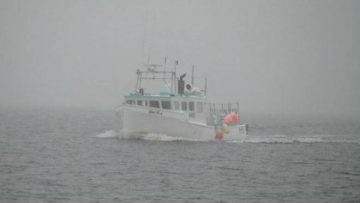 One day before the winter lobster season comes to an end, a fishing boat sank off the coast of Shelburne County and all five crew members were rescued. Sub-Lt. Jamie Tobin, a spokesman for the Joint Rescue Coordination Centre, said two fishing vessels collided near Port Latour around 9 a.m. on Monday. The Lois N 2 began sinking, but the other vessel was in better condition and was able to take on the crew of the sinking boat and transported them safely to shore. The JRCC didn’t send any rescue teams to the accident, but Sub-Lt. Tobin said, “we are very happy to hear that both crews are now safely on shore.” Joseph Williams of Port Latour owns the Lois N 2, which was built in 1979. The lobster fishing season on Nova Scotia’s south shore ends on Tuesday. Link 09:23
One day before the winter lobster season comes to an end, a fishing boat sank off the coast of Shelburne County and all five crew members were rescued. Sub-Lt. Jamie Tobin, a spokesman for the Joint Rescue Coordination Centre, said two fishing vessels collided near Port Latour around 9 a.m. on Monday. The Lois N 2 began sinking, but the other vessel was in better condition and was able to take on the crew of the sinking boat and transported them safely to shore. The JRCC didn’t send any rescue teams to the accident, but Sub-Lt. Tobin said, “we are very happy to hear that both crews are now safely on shore.” Joseph Williams of Port Latour owns the Lois N 2, which was built in 1979. The lobster fishing season on Nova Scotia’s south shore ends on Tuesday. Link 09:23
Salt in their veins and fire in their bellies: fishermen battling for Brexit
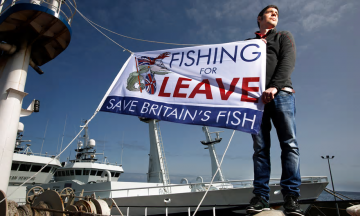 William Whyte has a new flag flying from the rigging of his vast blue-hulled trawler, its fabric snapping in the brisk breeze coming in off the North Sea. It features the cartoon of a militant-looking fish wearing armour, a union jack shield at its waist and the legend “Fishing for Leave”. These flags are appearing on boats around Britain’s coast. The country’s trawlermen are placing themselves in the vanguard of the campaign to quit the EU. There is talk of a flotilla massing on the Thames, as the country’s fishing fleets press the case for Brexit. For Scottish trawlermen such as Whyte, the EU referendum is a godsend. Striding over long, brightly coloured coils of rope, netting and sun-bleached floats laid out on the quayside at Fraserburgh, north of Aberdeen, Whyte hopes the UK will vote to leave the EU, finally releasing his industry from the constraints, the wheeling and dealing, and complexities of the common fisheries policy (CFP). Read the rest here 07:54
William Whyte has a new flag flying from the rigging of his vast blue-hulled trawler, its fabric snapping in the brisk breeze coming in off the North Sea. It features the cartoon of a militant-looking fish wearing armour, a union jack shield at its waist and the legend “Fishing for Leave”. These flags are appearing on boats around Britain’s coast. The country’s trawlermen are placing themselves in the vanguard of the campaign to quit the EU. There is talk of a flotilla massing on the Thames, as the country’s fishing fleets press the case for Brexit. For Scottish trawlermen such as Whyte, the EU referendum is a godsend. Striding over long, brightly coloured coils of rope, netting and sun-bleached floats laid out on the quayside at Fraserburgh, north of Aberdeen, Whyte hopes the UK will vote to leave the EU, finally releasing his industry from the constraints, the wheeling and dealing, and complexities of the common fisheries policy (CFP). Read the rest here 07:54
In the Shadow of Memorial Day, 2016 – To All Fishermen: A Call To Action
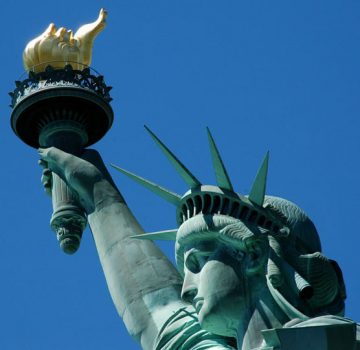 When is enough, enough? As fishermen we have collectively stood by as we watch our livelihoods, families, communities, and businesses get destroyed by an out of touch, uncaring federal government that has been lying to this industry and to the American public for decades. The line has been that because fish populations were in decline something had to be done to bring them back to more sustainable numbers. The lie has been that once we did this, we as fishermen would be rewarded for our collective sacrifices and we would once again be able to return to the job of harvesting this God given resource and once again feed the American people the finest, purest, cleanest form of protein available to man. Well we all know how this plan has played out. It has been hijacked and redirected by phony environmentalists, corporate capitalist’s and unelected bureaucrats that were put into positions of power through political appointments. It is what the founders of this nation warned us about. When government gets too big it undermines our rights and freedoms that so many have fought and died for. They promote their destructive agendas at the expense of this industry and the American people who rely on it for their source of seafood. Have you had enough and are you willing to take a collective stand against this tyranny? Read-A Call To Action here 20:35
When is enough, enough? As fishermen we have collectively stood by as we watch our livelihoods, families, communities, and businesses get destroyed by an out of touch, uncaring federal government that has been lying to this industry and to the American public for decades. The line has been that because fish populations were in decline something had to be done to bring them back to more sustainable numbers. The lie has been that once we did this, we as fishermen would be rewarded for our collective sacrifices and we would once again be able to return to the job of harvesting this God given resource and once again feed the American people the finest, purest, cleanest form of protein available to man. Well we all know how this plan has played out. It has been hijacked and redirected by phony environmentalists, corporate capitalist’s and unelected bureaucrats that were put into positions of power through political appointments. It is what the founders of this nation warned us about. When government gets too big it undermines our rights and freedoms that so many have fought and died for. They promote their destructive agendas at the expense of this industry and the American people who rely on it for their source of seafood. Have you had enough and are you willing to take a collective stand against this tyranny? Read-A Call To Action here 20:35
Great Pacific Seafoods files for bankruptcy, shuts down operations in Alaska and elsewhere
 Great Pacific Seafoods, a processor with three plants and hundreds of workers in Alaska, announced Sunday that it is filing for bankruptcy and shutting down operations. The company kept corporate headquarters in Seattle but plants in Kenai, Whittier and Anchorage that processed salmon from the Copper River, Prince William Sound and Cook Inlet, as well as cod from the Gulf of Alaska. It pulled out of an operation buying Arctic chum in Kotzebue last summer. The move comes days after Great Pacific’s Kenai plant suddenly closed. The company filed for bankruptcy in Washington State, the release said. “We believe we have no other choice given the financial performance we experienced last year,” the statement said. Read the rest here 20:48
Great Pacific Seafoods, a processor with three plants and hundreds of workers in Alaska, announced Sunday that it is filing for bankruptcy and shutting down operations. The company kept corporate headquarters in Seattle but plants in Kenai, Whittier and Anchorage that processed salmon from the Copper River, Prince William Sound and Cook Inlet, as well as cod from the Gulf of Alaska. It pulled out of an operation buying Arctic chum in Kotzebue last summer. The move comes days after Great Pacific’s Kenai plant suddenly closed. The company filed for bankruptcy in Washington State, the release said. “We believe we have no other choice given the financial performance we experienced last year,” the statement said. Read the rest here 20:48
Central Coast Crab fishermen making sacrifices to protect whales
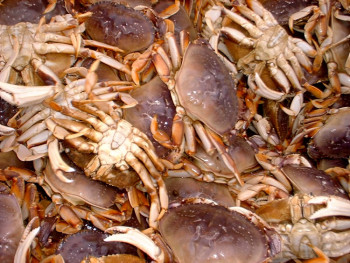 It’s been a rough season for crab fishermen after a domoic acid outbreak kept them out of the water for months. And now that they’re finally allowed to fish, many are choosing to wrap-up early in an effort to protect whales in the Monterey Bay. It’s feeding time for humpback whales but because of the delay in crab season, whales are getting caught in fishing gear that’s normally not in the water this time of year. That’s why crab fisherman, ocean advocacy groups and governmental agencies are teaming up to prevent whale entanglements in the Monterey Bay. “We’re doing everything we can to reduce entanglements and working with the environmental groups and whale disentanglement teams to alter our gear types and ways we fish to reduce entanglements,” said commercial fisherman Walter Deyerle. Read the rest here 18:03
It’s been a rough season for crab fishermen after a domoic acid outbreak kept them out of the water for months. And now that they’re finally allowed to fish, many are choosing to wrap-up early in an effort to protect whales in the Monterey Bay. It’s feeding time for humpback whales but because of the delay in crab season, whales are getting caught in fishing gear that’s normally not in the water this time of year. That’s why crab fisherman, ocean advocacy groups and governmental agencies are teaming up to prevent whale entanglements in the Monterey Bay. “We’re doing everything we can to reduce entanglements and working with the environmental groups and whale disentanglement teams to alter our gear types and ways we fish to reduce entanglements,” said commercial fisherman Walter Deyerle. Read the rest here 18:03
Cape Cod Gray seals’ impact comes into focus for students that quantified the numbers
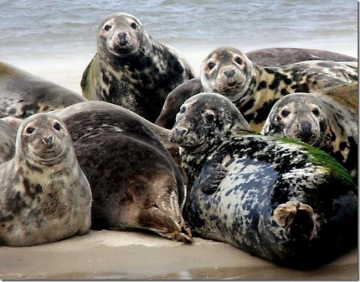 In April, Aaron Knight flew a small plane along the shore of South Monomoy Island off the Chatham coast, taking an aerial video of a seal-lined beach below him. Among the many who saw the film on Facebook was Peter Trull, field naturalist, author and a seventh-grade science teacher at Cape Cod Lighthouse Charter School in Harwich. Like everyone, he was amazed. One Facebook post quipped there appeared to be “trillions of seals.” Maybe not trillions, but the images did beg the question, how many? But one unanswered question, Trull said, is how many seals are there? “There’s no number,” he said. “There are estimates and some speculation, but no number.” In the aerial images, Trull saw an opportunity to find the answer. Trull has done many aerial counts of various species for NOAA, the Center for Coastal Studies, the U.S. Fish and Wildlife Service, and National Park Service. Trull combined his expertise with a lesson for his students. Read the rest here 17:21
In April, Aaron Knight flew a small plane along the shore of South Monomoy Island off the Chatham coast, taking an aerial video of a seal-lined beach below him. Among the many who saw the film on Facebook was Peter Trull, field naturalist, author and a seventh-grade science teacher at Cape Cod Lighthouse Charter School in Harwich. Like everyone, he was amazed. One Facebook post quipped there appeared to be “trillions of seals.” Maybe not trillions, but the images did beg the question, how many? But one unanswered question, Trull said, is how many seals are there? “There’s no number,” he said. “There are estimates and some speculation, but no number.” In the aerial images, Trull saw an opportunity to find the answer. Trull has done many aerial counts of various species for NOAA, the Center for Coastal Studies, the U.S. Fish and Wildlife Service, and National Park Service. Trull combined his expertise with a lesson for his students. Read the rest here 17:21
Repeat illegal fishing offences land B.C. Fisherman in jail — again
 A commercial fisherman who sold up to $100,000 in illegally-acquired crab and halibut has been given a rare sentence of 21 days in jail for breaching his probation conditions. Fisheries and Oceans Canada says Scott Steer was arrested at sea on April 10 for “failing to comply with a court order banning him from being on any vessel other than BC Ferries.” Jim Robson, the department’s acting area chief for the South Coast, said Steer was apprehended at sea with the help of members of the Canadian Coast Guard while he was en route to crab fishing grounds. He said Steer has a “considerable list of violations.” The DFO said this is Steer’s third jail term and that he was previously sentenced for various violations of “high volume, commercial quantities” of unauthorized crab and fish sales, each of them worth thousands of dollars. Read the story here 15:48
A commercial fisherman who sold up to $100,000 in illegally-acquired crab and halibut has been given a rare sentence of 21 days in jail for breaching his probation conditions. Fisheries and Oceans Canada says Scott Steer was arrested at sea on April 10 for “failing to comply with a court order banning him from being on any vessel other than BC Ferries.” Jim Robson, the department’s acting area chief for the South Coast, said Steer was apprehended at sea with the help of members of the Canadian Coast Guard while he was en route to crab fishing grounds. He said Steer has a “considerable list of violations.” The DFO said this is Steer’s third jail term and that he was previously sentenced for various violations of “high volume, commercial quantities” of unauthorized crab and fish sales, each of them worth thousands of dollars. Read the story here 15:48
Dutch Baldwin sets snakehead record at 18.42 pounds
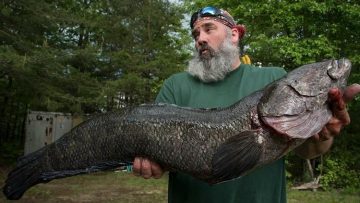 Over the past four years spent as a commercial boat fisherman, Dutch Baldwin has spent four or five nights per week on the water. Last weekend, though, brought a night that made history, when Baldwin caught a Maryland-record 18.42-pound northern snakehead. Baldwin and his fishing partner, Franklin Shotwell, were just about to head in for the evening when they made a detour toward an area where they usually find catfish. They turned their lights on, and Shotwell spotted a snakehead on Baldwin’s side of the boat. Baldwin used his compound bow to hit the fish near Marshall Hall on the Maryland side of the Potomac River. “We have a quota that we need to sell, so we go out and do what we can,” Baldwin said. “If we get more, we have more. We keep it, or we give it away.” Read the story here 15:01
Over the past four years spent as a commercial boat fisherman, Dutch Baldwin has spent four or five nights per week on the water. Last weekend, though, brought a night that made history, when Baldwin caught a Maryland-record 18.42-pound northern snakehead. Baldwin and his fishing partner, Franklin Shotwell, were just about to head in for the evening when they made a detour toward an area where they usually find catfish. They turned their lights on, and Shotwell spotted a snakehead on Baldwin’s side of the boat. Baldwin used his compound bow to hit the fish near Marshall Hall on the Maryland side of the Potomac River. “We have a quota that we need to sell, so we go out and do what we can,” Baldwin said. “If we get more, we have more. We keep it, or we give it away.” Read the story here 15:01
‘Deadliest Catch’ star Capt. Keith Colburn returns to Seattle with a Wizard’s brew
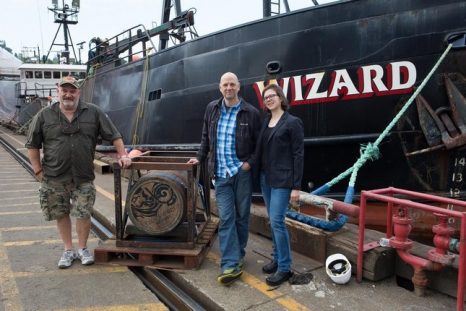 Call it The Return of the Wizard. The crab boat helmed by Capt. Keith Colburn of “The Deadliest Catch” reality television show arrived in Seattle this month with a special cargo: a barrel of a traditional Scandinavian spirit. Bluewater Organic Distilling owner John Lundin was on hand to greet Colburn and take possession of the barrel, which contains a batch of akvavit. Lundin crafted the akvavit at his distillery on the Everett waterfront before sending it to sea to age aboard the F/V Wizard. Barrel-aging in the hold of ships is the traditional way to make the spirit. Sampling the akavit on its return to port, Lundin said it was fabulous. Read the story here 13:20
Call it The Return of the Wizard. The crab boat helmed by Capt. Keith Colburn of “The Deadliest Catch” reality television show arrived in Seattle this month with a special cargo: a barrel of a traditional Scandinavian spirit. Bluewater Organic Distilling owner John Lundin was on hand to greet Colburn and take possession of the barrel, which contains a batch of akvavit. Lundin crafted the akvavit at his distillery on the Everett waterfront before sending it to sea to age aboard the F/V Wizard. Barrel-aging in the hold of ships is the traditional way to make the spirit. Sampling the akavit on its return to port, Lundin said it was fabulous. Read the story here 13:20
Winners and Losers – The politics of fisheries decisions in Lobster Fishing Area 25
 With just about any political decision there are winners and there are losers. A tax break helps some while others pay through a reduction in service somewhere else. There are also winners and losers, or at least a perception of such, in the case of Federal Fisheries Minister Hunter Tootoo’s decision last week to increase the minimum lobster carapace size in Lobster Fishing Area 25. The Maritime Fishermen’s Union in New Brunswick can claim to be the winner, in that it had been lobbying for an increase, while the Prince County Fishermen’s Association in P.E.I. is taking the loss as it had been arguing in favour of leaving the size limit unchanged. Read the rest here 12:15
With just about any political decision there are winners and there are losers. A tax break helps some while others pay through a reduction in service somewhere else. There are also winners and losers, or at least a perception of such, in the case of Federal Fisheries Minister Hunter Tootoo’s decision last week to increase the minimum lobster carapace size in Lobster Fishing Area 25. The Maritime Fishermen’s Union in New Brunswick can claim to be the winner, in that it had been lobbying for an increase, while the Prince County Fishermen’s Association in P.E.I. is taking the loss as it had been arguing in favour of leaving the size limit unchanged. Read the rest here 12:15
Exporting crustaceans a ‘crazy juggling game’ – Maine Coast Co. delivers lobsters around the world
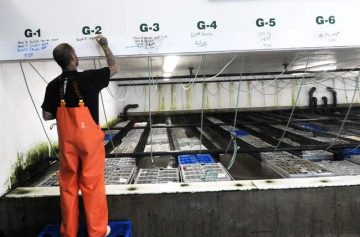 Every day is a “crazy juggling game” for Tom Adams, owner of the wildly successful lobster wholesaler Maine Coast Company. His product is live and perishable. His customers are in Seoul, South Korea, Madrid, Spain, or San Francisco. He has to worry about Homeland Security regulations, endless paperwork for China exports, planes that don’t take off on time. “There’s a lot of risk when your product is controlled by Mother Nature,” said Adams. “We have to get it where it’s going in 48 to 60 hours. Any delay means it doesn’t get there alive. My strong point, I think, is that I have the gut instinct to most of the time play the market correctly. It’s no different than oil futures or some other commodity. It’s just that I’m dealing in lobsters.” Read the story here 11:44
Every day is a “crazy juggling game” for Tom Adams, owner of the wildly successful lobster wholesaler Maine Coast Company. His product is live and perishable. His customers are in Seoul, South Korea, Madrid, Spain, or San Francisco. He has to worry about Homeland Security regulations, endless paperwork for China exports, planes that don’t take off on time. “There’s a lot of risk when your product is controlled by Mother Nature,” said Adams. “We have to get it where it’s going in 48 to 60 hours. Any delay means it doesn’t get there alive. My strong point, I think, is that I have the gut instinct to most of the time play the market correctly. It’s no different than oil futures or some other commodity. It’s just that I’m dealing in lobsters.” Read the story here 11:44
LIFO panel gets personal stories at Gander hearings-Who will share the northern shrimp?
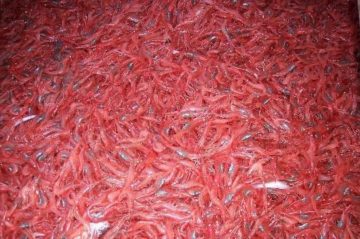 Glen Best is a fifth-generation fisherman who lives on Fogo Island. Since 1990, he’s invested about $5 million in his fishing enterprise — buying new vessels and fishing licences, and transitioning his enterprise from groundfish to crab and, since 1998, to shrimp. He was one of about 100 people who came to Gander Thursday to present to the federal panel appointed by Fisheries and Oceans Minister Hunter Tootoo to review the (LIFO) policy on northern shrimp. Best’s story was similar to the one told by several other fishermen at the hearing. Read the rest here 11:28
Glen Best is a fifth-generation fisherman who lives on Fogo Island. Since 1990, he’s invested about $5 million in his fishing enterprise — buying new vessels and fishing licences, and transitioning his enterprise from groundfish to crab and, since 1998, to shrimp. He was one of about 100 people who came to Gander Thursday to present to the federal panel appointed by Fisheries and Oceans Minister Hunter Tootoo to review the (LIFO) policy on northern shrimp. Best’s story was similar to the one told by several other fishermen at the hearing. Read the rest here 11:28
Female blue crabs getting tagged in Gulf migration study
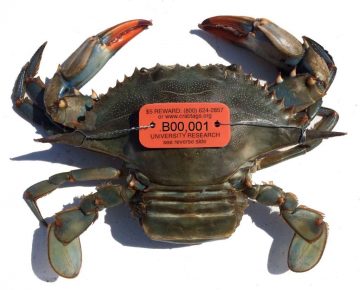 Their scientific name – Callinectes sapidus – means “beautiful swimmer.” But just where, when and how far do blue crabs – specifically, the Gulf of Mexico’s adult female blue crabs – beautifully swim? A just-started, Gulf Coast-wide research project involving affixing tags on as many as 30,000 adult female blue crabs aims to try answering those questions. Insights garnered through reporting of the recovery of those marked crustaceans should help fisheries scientists better understand the population dynamics of this key coastal marine species and translate that knowledge into sound, science-based management decisions. Those management decisions will be crucial to maintaining a healthy population of blue crabs, the Gulf Coast’s most abundant large crab – a vital prey/predator component of the marine ecosystem and an economically and socially important piece of the recreational and commercial fishery. There is a lot to learn about blue crabs. Read the rest here 22:45
Their scientific name – Callinectes sapidus – means “beautiful swimmer.” But just where, when and how far do blue crabs – specifically, the Gulf of Mexico’s adult female blue crabs – beautifully swim? A just-started, Gulf Coast-wide research project involving affixing tags on as many as 30,000 adult female blue crabs aims to try answering those questions. Insights garnered through reporting of the recovery of those marked crustaceans should help fisheries scientists better understand the population dynamics of this key coastal marine species and translate that knowledge into sound, science-based management decisions. Those management decisions will be crucial to maintaining a healthy population of blue crabs, the Gulf Coast’s most abundant large crab – a vital prey/predator component of the marine ecosystem and an economically and socially important piece of the recreational and commercial fishery. There is a lot to learn about blue crabs. Read the rest here 22:45
Maine’s Elver harvest tops $13 million as the season winds down
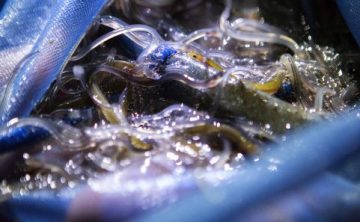 As of 5 p.m. Thursday, May 26, elver fishermen throughout Maine had caught and sold nearly 9,270 pounds of the baby American eels for an estimated statewide gross revenue total just shy of $13.32 million, officials with Maine Department of Marine Resources indicated on the agency’s website. The annual statewide harvest limit for elvers in Maine is 9,688 pounds. The 2016 season is expected to end either on June 7 or when the statewide quota of 9,688 pounds is reached, whichever happens first. Jonesport fisherman Billy Milliken said Wednesday that despite the high value of the fishery this year, his elver income is about the same as it was in 2015, when only 5,259 pounds were caught statewide. Read the story here 21:14
As of 5 p.m. Thursday, May 26, elver fishermen throughout Maine had caught and sold nearly 9,270 pounds of the baby American eels for an estimated statewide gross revenue total just shy of $13.32 million, officials with Maine Department of Marine Resources indicated on the agency’s website. The annual statewide harvest limit for elvers in Maine is 9,688 pounds. The 2016 season is expected to end either on June 7 or when the statewide quota of 9,688 pounds is reached, whichever happens first. Jonesport fisherman Billy Milliken said Wednesday that despite the high value of the fishery this year, his elver income is about the same as it was in 2015, when only 5,259 pounds were caught statewide. Read the story here 21:14
Westport Blessing of the Fleet ceremony this Sunday
 Westport’s 55th Annual Blessing of the Fleet Ceremony will be held at 1 p.m. Sunday. Community members and visitors are invited to join area clergy for a short ceremony at the Fishermen’s Memorial at the turnaround of Neddie Rose Drive in Westport’s Marina District. The program is given in remembrance of those whose lives have been taken by the sea and to ask the Lord’s blessing for those who continue to go out on the waters to make a living or to help seafarers in trouble. For the first time, as a part of the Weekend with the Fleet festival, commercial fishing vessels will also gather off Point Chehalis to form an offshore Nautical Honor Guard during the Blessing of the Fleet ceremony this year. Read the rest here 17:51
Westport’s 55th Annual Blessing of the Fleet Ceremony will be held at 1 p.m. Sunday. Community members and visitors are invited to join area clergy for a short ceremony at the Fishermen’s Memorial at the turnaround of Neddie Rose Drive in Westport’s Marina District. The program is given in remembrance of those whose lives have been taken by the sea and to ask the Lord’s blessing for those who continue to go out on the waters to make a living or to help seafarers in trouble. For the first time, as a part of the Weekend with the Fleet festival, commercial fishing vessels will also gather off Point Chehalis to form an offshore Nautical Honor Guard during the Blessing of the Fleet ceremony this year. Read the rest here 17:51
Louisiana Shrimpers – Big hauls, little profits caused by imported shrimp
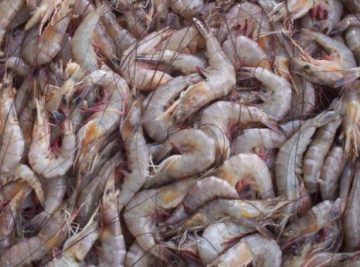 When Lance Nacio recently walked into a Fresh Market grocery store, he made a beeline for the seafood as he always does. He found that only one type of shrimp was local out of the nine varieties. Nacio started work as a commercial fisherman in 1997. Changes in the industry affect his livelihood so the fact that 93 percent of shrimp is imported or farmed hurts his business. Nacio is one of 5,500 licensed shrimpers in Louisiana alone, according to the Louisiana Department of Wildlife and Fisheries. The first shrimping season of the year opened Monday and local fishermen said their early hauls are full of large white shrimp and average brown shrimp, but the imported shrimp hurts the prices regardless of the local quality. “Import shrimp is a lot of what drives global price,” said Nacio, who was recently featured on a Dr. Oz segment about imported shrimp. “We’re not considered a specialty anymore. We’re more of a commodity.” Read the story here 17:08
When Lance Nacio recently walked into a Fresh Market grocery store, he made a beeline for the seafood as he always does. He found that only one type of shrimp was local out of the nine varieties. Nacio started work as a commercial fisherman in 1997. Changes in the industry affect his livelihood so the fact that 93 percent of shrimp is imported or farmed hurts his business. Nacio is one of 5,500 licensed shrimpers in Louisiana alone, according to the Louisiana Department of Wildlife and Fisheries. The first shrimping season of the year opened Monday and local fishermen said their early hauls are full of large white shrimp and average brown shrimp, but the imported shrimp hurts the prices regardless of the local quality. “Import shrimp is a lot of what drives global price,” said Nacio, who was recently featured on a Dr. Oz segment about imported shrimp. “We’re not considered a specialty anymore. We’re more of a commodity.” Read the story here 17:08
Crashed $450K scallop survey HabCam is recovered
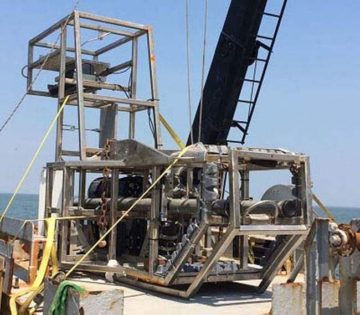 Scientists and crew members aboard a NOAA-chartered research vessel have recovered a $450,000 scallop survey camera that was lost a week ago when it apparently snagged on an underwater shipwreck southeast of Delaware Bay, a NOAA spokesperson said. “We are pleased, relieved, and preparing to move forward with our (scallop) survey for this year,” Susan Gardner, acting deputy director of NOAA Fisheries’ Northeast Fisheries Science Center, said in a press release. The camera appears to have only “minimal damage” on its exterior and is being tested by scientists, NOAA said. Read the rest here 16:04
Scientists and crew members aboard a NOAA-chartered research vessel have recovered a $450,000 scallop survey camera that was lost a week ago when it apparently snagged on an underwater shipwreck southeast of Delaware Bay, a NOAA spokesperson said. “We are pleased, relieved, and preparing to move forward with our (scallop) survey for this year,” Susan Gardner, acting deputy director of NOAA Fisheries’ Northeast Fisheries Science Center, said in a press release. The camera appears to have only “minimal damage” on its exterior and is being tested by scientists, NOAA said. Read the rest here 16:04
Squid and Spiny lobster and were king in 2014 California Fisheries
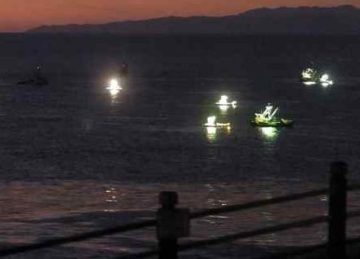 While California’s seafood sales overwhelmingly relied on imported animals, commercial fisheries landed nearly 360 million pounds of fin- and shellfish in 2014, according to a federal report released Thursday with the most recent figures on the nation’s fishing economy. The state’s seafood industry, including imports, generated a whopping $23 billion — more than 10 percent of the nation’s $214 billion total sales in 2014 from commercial harvest, seafood processors and dealers, wholesalers and distributors, and importers and retailers. As such, most of California’s nearly 144,000 industry jobs came from the import and retail sectors,,, Read the story here 15:20
While California’s seafood sales overwhelmingly relied on imported animals, commercial fisheries landed nearly 360 million pounds of fin- and shellfish in 2014, according to a federal report released Thursday with the most recent figures on the nation’s fishing economy. The state’s seafood industry, including imports, generated a whopping $23 billion — more than 10 percent of the nation’s $214 billion total sales in 2014 from commercial harvest, seafood processors and dealers, wholesalers and distributors, and importers and retailers. As such, most of California’s nearly 144,000 industry jobs came from the import and retail sectors,,, Read the story here 15:20
We went down hard, but FixMyWP.com picked us back up!
 When you do what we do and things go bad, its always a problem trying to get things fixed. We depend on people to keep the boat afloat. This may sound like it should be non problematic, but nothing could be further from the truth. It is certainly problematic when you think things are all right and you discover they are not! We noticed when posting the other night that things were amiss. We kept losing connectivity and getting error message from our server. It made it impossible to run the website. We decided to upgrade the web hosting service and add another layer of security. When we did this, Holy Hell broke loose! We lost everything! After hours of phone time with the hosting service, and much anxiety, we learned that the service was not actually hosting fisherynation.com, and someone had redirected the info to another hosting service! This made it impossible for them to restore our website. I sent a message to Makis Mourelatos at FixMyWP.com who had debugged our website that had been hacked earlier in the month. He worked his magic, recovered the website, and we are now back. Thank you Makis for everything. 14:59
When you do what we do and things go bad, its always a problem trying to get things fixed. We depend on people to keep the boat afloat. This may sound like it should be non problematic, but nothing could be further from the truth. It is certainly problematic when you think things are all right and you discover they are not! We noticed when posting the other night that things were amiss. We kept losing connectivity and getting error message from our server. It made it impossible to run the website. We decided to upgrade the web hosting service and add another layer of security. When we did this, Holy Hell broke loose! We lost everything! After hours of phone time with the hosting service, and much anxiety, we learned that the service was not actually hosting fisherynation.com, and someone had redirected the info to another hosting service! This made it impossible for them to restore our website. I sent a message to Makis Mourelatos at FixMyWP.com who had debugged our website that had been hacked earlier in the month. He worked his magic, recovered the website, and we are now back. Thank you Makis for everything. 14:59
For Sale! 121-foot law enforcement vessel used for investigating commercial fishing violations
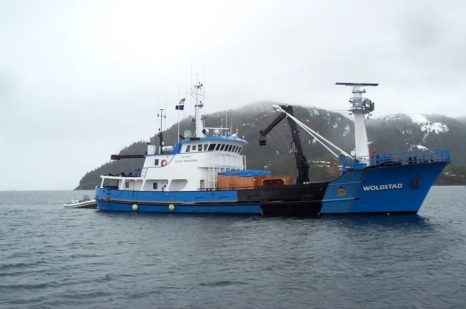 One of four large vessels used by Alaska State Wildlife Troopers for commercial fishing enforcement will be sold for budget reasons. The Woldstad carries a civilian operating crew of four. Eliminating those positions will save more than $500,000 annually but will mean less enforcement, said wildlife trooper division director Steve Bear. “Us not being on the water, there will be more violations that go undetected,” Bear said. “There’s no doubt about that.” The state hopes to sell the vessel by July 1. The vessel is so specialized, “It’s going to take the right buyer,” Bear said. Read the rest here 18:14
One of four large vessels used by Alaska State Wildlife Troopers for commercial fishing enforcement will be sold for budget reasons. The Woldstad carries a civilian operating crew of four. Eliminating those positions will save more than $500,000 annually but will mean less enforcement, said wildlife trooper division director Steve Bear. “Us not being on the water, there will be more violations that go undetected,” Bear said. “There’s no doubt about that.” The state hopes to sell the vessel by July 1. The vessel is so specialized, “It’s going to take the right buyer,” Bear said. Read the rest here 18:14
Bristol Bay Fishermen prep for 2016 reg changes
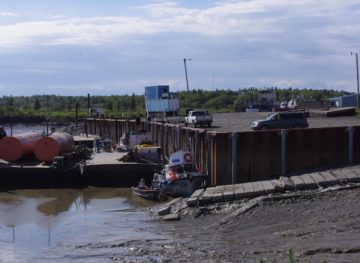 The Bristol Bay salmon fishery will see some changes this year, from when fishermen have to declare a district and how tenders accept deliveries from d-boats, to when the Wood River Special Harvest Area can be used. Among the changes made by the Alaska Department of Fish and Game and the State Board of Fisheries is one that will affect most fishermen early in the season, no matter their district. This year, drifters must register in the district in which they intend to fish right from the get go. Gone is the time to test the waters in different areas before committing to one. Once a fishermen is committed, there’s mandatory wait before they can switch. That change was made by the state Board of Fisheries in December, and was widely supported by public testimony and the Bristol Bay area advisory committees. But Dillingham drift fisherman Bronson Brito was one of few who opposed the change this winter, and said in mid-May that it’ll effect how he starts his season. Audio, Read the rest here 16:46
The Bristol Bay salmon fishery will see some changes this year, from when fishermen have to declare a district and how tenders accept deliveries from d-boats, to when the Wood River Special Harvest Area can be used. Among the changes made by the Alaska Department of Fish and Game and the State Board of Fisheries is one that will affect most fishermen early in the season, no matter their district. This year, drifters must register in the district in which they intend to fish right from the get go. Gone is the time to test the waters in different areas before committing to one. Once a fishermen is committed, there’s mandatory wait before they can switch. That change was made by the state Board of Fisheries in December, and was widely supported by public testimony and the Bristol Bay area advisory committees. But Dillingham drift fisherman Bronson Brito was one of few who opposed the change this winter, and said in mid-May that it’ll effect how he starts his season. Audio, Read the rest here 16:46
Cormac Burke talks common sense about Leaving the EU
 FIGHTING FOR COMMON SENSE IN A SYSTEM WHERE A CORRECTLY ‘BENT’ BANANA IS MORE IMPORTANT THAN LIVELIHOODS, TRADITION AND HERITAGE
FIGHTING FOR COMMON SENSE IN A SYSTEM WHERE A CORRECTLY ‘BENT’ BANANA IS MORE IMPORTANT THAN LIVELIHOODS, TRADITION AND HERITAGE
Although the final decision of a ‘Brexit’ will ultimately lie in the hands of voters who are looking at a wide range of economic impacts or possible benefits and not just one industry or sector, the ‘Fishing for Leave’ campaign believes that it is vital that these voters must be made fully aware of the destruction and decimation of the once ‘great’ British fishing industry since power of control was surrendered to the European Union. At the core of the anger of those wanting freedom and to break away from the EU is simply the fact that this is “not what we signed up for” — as a nation (indeed for all the individual nations who are members of the EU), the agreement was to join a European ‘common market’ which, in principle, was a reasonable proposal i.e. that a community of nations should work together as one to benefit the economy of each individual. Read the article here 15:33
BREAKING” Fishermen rescue F/A-18 Super Hornet Pilots, and Co pilots off NC coast
 Two Navy jet fighters collided off the coast of North Carolina during a routine training mission on Thursday, sending four people to the hospital, officials said. The F/A-18 Super Hornet jet fighters, based in Virginia Beach, collided about 10:40 a.m. off the coast of Cape Hatteras, said Navy spokesman Ensign Mark Rockwellpate. Four crew members were taken to a hospital in Norfolk, but Ensign Rockwellpate said he didn’t have information about the extent of their injuries. A safety investigation will be carried out to determine the cause of the accident, he said. Coast Guard Fifth District Command Center watchstanders were notified at 10:30 a.m. that two planes collided and four people were in the water. The crew of the commercial fishing vessel Jamie recovered all four survivors. An HH-60 Jayhawk helicopter crew from Coast Guard Air Station Elizabeth City, North Carolina, hoisted the survivors and took them to Norfolk Sentara General hospital. 14:33
Two Navy jet fighters collided off the coast of North Carolina during a routine training mission on Thursday, sending four people to the hospital, officials said. The F/A-18 Super Hornet jet fighters, based in Virginia Beach, collided about 10:40 a.m. off the coast of Cape Hatteras, said Navy spokesman Ensign Mark Rockwellpate. Four crew members were taken to a hospital in Norfolk, but Ensign Rockwellpate said he didn’t have information about the extent of their injuries. A safety investigation will be carried out to determine the cause of the accident, he said. Coast Guard Fifth District Command Center watchstanders were notified at 10:30 a.m. that two planes collided and four people were in the water. The crew of the commercial fishing vessel Jamie recovered all four survivors. An HH-60 Jayhawk helicopter crew from Coast Guard Air Station Elizabeth City, North Carolina, hoisted the survivors and took them to Norfolk Sentara General hospital. 14:33
North Carolina Fisheries Association Weekly Update for May 23, 2016
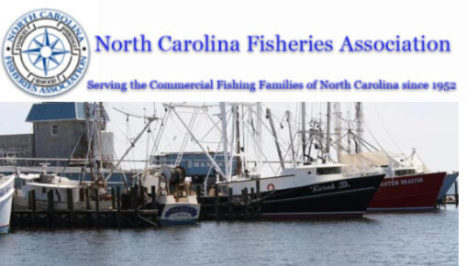 Click here to read the Weekly Update, to read all the updates, Click here 12:02
Click here to read the Weekly Update, to read all the updates, Click here 12:02




































